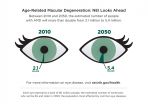(Press-News.org) The reason why middle class people are more likely to play music, paint and act has been revealed in a major new study.
Research involving 78,000 people found that it was not wealth or social status that were strongly linked to people taking part in arts activities as amateurs or professionals.
Instead, it was the level of education that lay behind arts participation, the study by Dr Aaron Reeves, a sociologist at the University of Oxford, found.
In an article in the journal Sociology, Dr Reeves said that of the 78,011 surveyed, 18% had taken part in painting or photography, 9% in dance, 10% in music, 2% in drama or opera; 6% had written poetry, plays or fiction. Only 22% had not done any artistic activities.
He found that having a higher income did not make arts participation more likely - those earning over £30,000 a year were less likely to take part than those earning less.
Social status mattered little - those in higher professional jobs were less likely to take part in the arts than those in lower professional jobs, and only slightly more likely to take part than those in lower supervisory roles and semi-routine roles.
Instead, the clearest link with artistic activity was education. After accounting for the influence of family class background by statistical analysis, he found that those with a degree were around four times more likely to take part in painting and photography than those with no educational qualification, five times more likely to be involved in dance and in crafts, and four times more likely to play a musical instrument.
Those taking part in arts were more likely to be middle class, simply because they were more likely to be highly educated. But although having a middle class background makes it more likely that someone had gone to university, Dr Reeves's findings showed that they were no more likely to take part in arts after graduating than were working class students.
Dr Reeves said that results for arts participation were different from those for watching or listening to arts performances, where social class and status were strongly linked to higher rates of arts consumption.
"Arts participation, unlike arts consumption and cultural engagement generally, is not closely associated with either social class or social status," said Dr Reeves in the article. "This result deviates from the expectation - unexpectedly, those with higher incomes are less likely to be arts participants.
"These results show that it is educational attainment alone, and not social status, that is shaping the probability of being an arts participant."
Dr Reeves suggests two reasons for the link with education. "First, those with higher information processing capacity are more likely to enjoy highbrow cultural practices, such as arts participation, and be university graduates. In short, university graduates are more likely to possess the cultural resources necessary for both arts consumption and arts participation.
"Second, universities make admissions decisions using information on extracurricular and cultural activities, increasing the likelihood that university graduates are culturally active."
INFORMATION:
Sociology is published by the British Sociological Association and SAGE.
For more information, please contact:
Tony Trueman
British Sociological Association
Tel: 07964 023392
tony.trueman@britsoc.org.uk
Notes:
1. Data were taken from three pooled waves of the Taking-Part survey (2005-6, 2006-7, 2007-8)
(N = 78,011). The survey consists of a representative sample of face-to-face interviews with people aged 16 or over in private households in England, with a booster sample of adults from non-white backgrounds.
2. The article is 'Neither class nor status: arts participation and the social strata' and appears in the latest edition of Sociology, published by the British Sociological Association and SAGE.
3. The British Sociological Association's charitable aim is to promote sociology. The BSA is a Company Limited by Guarantee. Registered in England and Wales. Company Number: 3890729. Registered Charity Number 1080235 http://www.britsoc.co.uk
A study of 6467 children from England--presented at this year's annual meeting of the European Association for the Study of Diabetes (EASD) in Stockholm--shows that no access to a garden at age 3-5 years is linked to an increased risk developing obesity by age 7 years. The research is by Annemarie Schalkwijk, VU University Medical Centre, Amsterdam, the Netherlands, and colleagues.
Overweight and obese children are at increased risk of becoming overweight and obese adults and therefore being overweight or obese in childhood is an important risk factor for developing ...
A meta-analysis of 21 studies presented at this year's annual meeting the European Association for the Study of Diabetes (EASD) shows that exposure to pesticides is associated with increased risk of developing diabetes by 61%, with different types of pesticides showing varying levels of risk. The study is by Giorgos Ntritsos, University of Ioannina, Greece, and Dr Ioanna Tzoulaki and Dr Evangelos Evangelou, Imperial College London, UK, and colleagues.
How diabetes develops is considered to be an interplay between genetic and environmental factors. Emerging evidence suggests ...
New research presented at this year's annual meeting of the European Association for the Study of Diabetes in Stockholm shows that a 10-times increased exposure to organic pollutants in early pregnancy is associated with a 4.4 times increased risk of a pregnant woman developing gestational diabetes. The research is by Assistant Professor Leda Chatzi, University of Crete, Heraklion, Greece.
Persistent Organic Pollutants (POPs) are a group of diverse substances, including polychlorinated biphenyls (PCBs) and organochlorine pesticides that are resistant to biodegradation ...
On Sept. 13, 2015, the Solar and Heliospheric Observatory -- a joint project of the European Space Agency and NASA -- discovered its 3,000th comet, cementing its standing as the greatest comet finder of all time. Prior to the 1995 launch of the observatory, commonly known as SOHO, only a dozen or so comets had ever even been discovered from space, while some 900 had been discovered from the ground.
The 3,000th comet was originally spotted in the data by Worachate Boonplod, of Samut Songkhram, Thailand.
"I am very happy to be part of a great milestone for SOHO's comet ...
UNIVERSITY PARK, Pa. -- Asking just two questions may be able to help nurses and doctors quickly and easily identify delirium in hospitalized older adults, according to health researchers.
Delirium is a reversible cognitive condition that can be resolved if caught and treated early.
"Delirium can be very costly and deadly -- and with high-risk patients, time matters," said Donna M. Fick, Distinguished Professor of Nursing and co-director of the Hartford Center of Geriatric Nursing Excellence at Penn State. "Our ultra-brief two-item bedside test for delirium takes an ...
According to a NASA analysis of satellite data, the 2015 Arctic sea ice minimum extent is the fourth lowest on record since observations from space began.
The analysis by NASA and the NASA-supported National Snow and Ice Data Center (NSIDC) at the University of Colorado at Boulder showed the annual minimum extent was 1.70 million square miles (4.41 million square kilometers) on Sept. 11. This year's minimum is 699,000 square miles (1.81 million square kilometers) lower than the 1981-2010 average.
Arctic sea ice cover, made of frozen seawater that floats on top of the ...
Earth's gravity has influenced the orientation of thousands of faults that form in the lunar surface as the moon shrinks, according to new results from NASA's Lunar Reconnaissance Orbiter (LRO) spacecraft.
In August, 2010, researchers using images from LRO's Narrow Angle Camera (NAC) reported the discovery of 14 cliffs known as "lobate scarps" on the moon's surface, in addition to about 70 previously known from the limited high-resolution Apollo Panoramic Camera photographs. Due largely to their random distribution across the surface, the science team concluded that the ...
People with a genetic predisposition for age-related macular degeneration (AMD) significantly increased their odds of developing the blinding eye disorder if they had a history of heavy smoking and consistently did not exercise or eat enough fruits and vegetables, according to an observational study of women funded by the National Eye Institute, part of the National Institutes of Health.
Eating a healthy diet and getting exercise have been shown in earlier studies to protect against AMD, a leading cause of vision loss among people age 50 and older. Findings from this ...
A new computational model developed by scientists from the University of Chicago could help improve the allocation of U.S. biomedical research resources. The tool, called the Research Opportunity Index (ROI), measures disparities between resources dedicated to a disease and its relative burden on society. ROI identifies diseases that receive a disproportionate share of biomedical resources, which represent opportunities for high-impact investment or for the realignment of existing resources. It is designed to provide an unbiased, data-driven framework to help scientific ...
In the midst of ferry boats, container ships and tourists crowding Seattle's Elliott Bay, young salmon are just trying to get a decent meal.
The fish hatch in the rivers and streams that feed into Puget Sound and almost immediately rely on eating small organisms near the shore, including in the heart of Seattle's commerce-filled waterfront.
Though salmon share the busy Elliott Bay waters with boats and barges, scientists suspect built-up, "armored" shorelines and large piers may be the main culprits disrupting fish habitat. These artificial structures block light and ...




